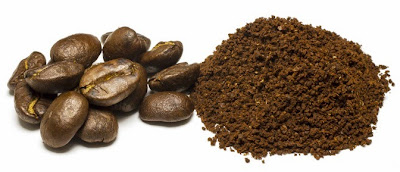Skip to main content
Did Caffeine Evolve?
Some people are told by their doctors that they need to cut down on the caffeine. Then they find out that the stuff is in many things that they never expected. Coffee is probably the first thing people think of, but caffeine is also in tea, soft drinks (including some non-colas), chocolate, pain relievers use it to "deliver" the remedy as well as ease the pain, foods and snacks that try to give you a boost, ice cream, and more. Cowboys won't give up their coffee, nor will many people. But we may cut down a bit.
 |
| freeimages / humusak2 |
Scientists studied the genome of coffee. Since caffeine naturally occurs in so many plants, they resorted to the cop-out of "convergent evolution"; it evolved separately in several things. Even more far-fetched is the claim that "natural selection" had a hand in it. Not hardly. Why don't people laugh at these "scientific" pronouncements? If they had the sense that God gave a pack animal, they'd realize that evolution and natural selection are not explanations. Instead, it was the plan of the Designer.
Coffee—love it or hate it—it affects your life, and even your language. Whether you start your day with “Coffee, black” or take your “coffee break” at the water cooler, whether you occasionally chat “over coffee” or get frequent-flyer-miles from your coffee shop app, whether you contribute to the economic welfare of millions who depend on coffee as their cash crop, argue Brits get a better buzz from tea, or believe “Things go better with Coke™”—the key chemical in “the most traded commodity after oil”2\ has some impact on your life. Now an international team of researchers has sequenced coffee’s genome and concluded that convergent evolution produced caffeine more than once.
Caffeine is found in a dizzying variety of plants including coffee trees, tea bushes, yerba maté, cacao, kola, guarana, and even citrus trees. (The nectar of orange and grapefruit blossoms is caffeinated, as is the nectar of more familiar caffeine-producers, pleasing bees who come back for more.) The researchers sequenced Coffea canephora, the diploid “robusta” species that supplies nearly a third of the world’s coffee crop. Coffea canephorais one of the two parents of the hybrid tetraploid species Coffea arabica, which makes up most of the rest.
You can read the rest of this wake-up call by clicking on "Caffeine: Convergently Evolved or Creatively Provided".
